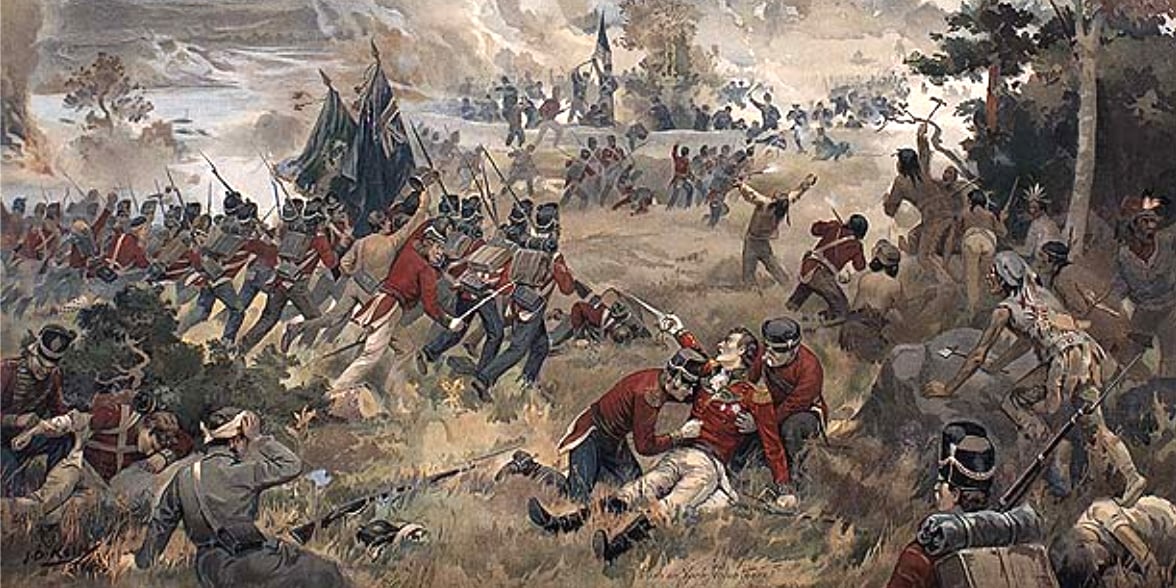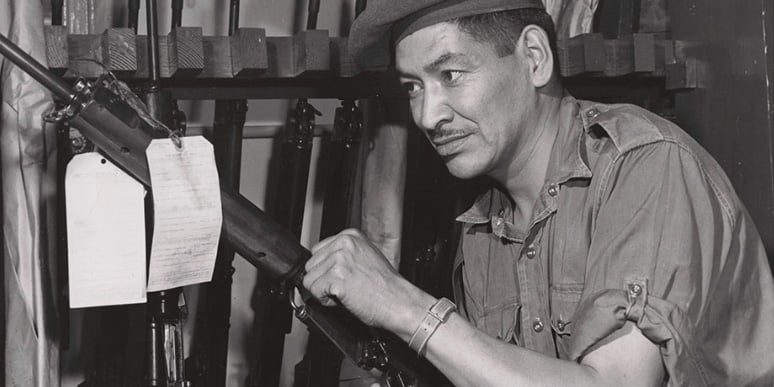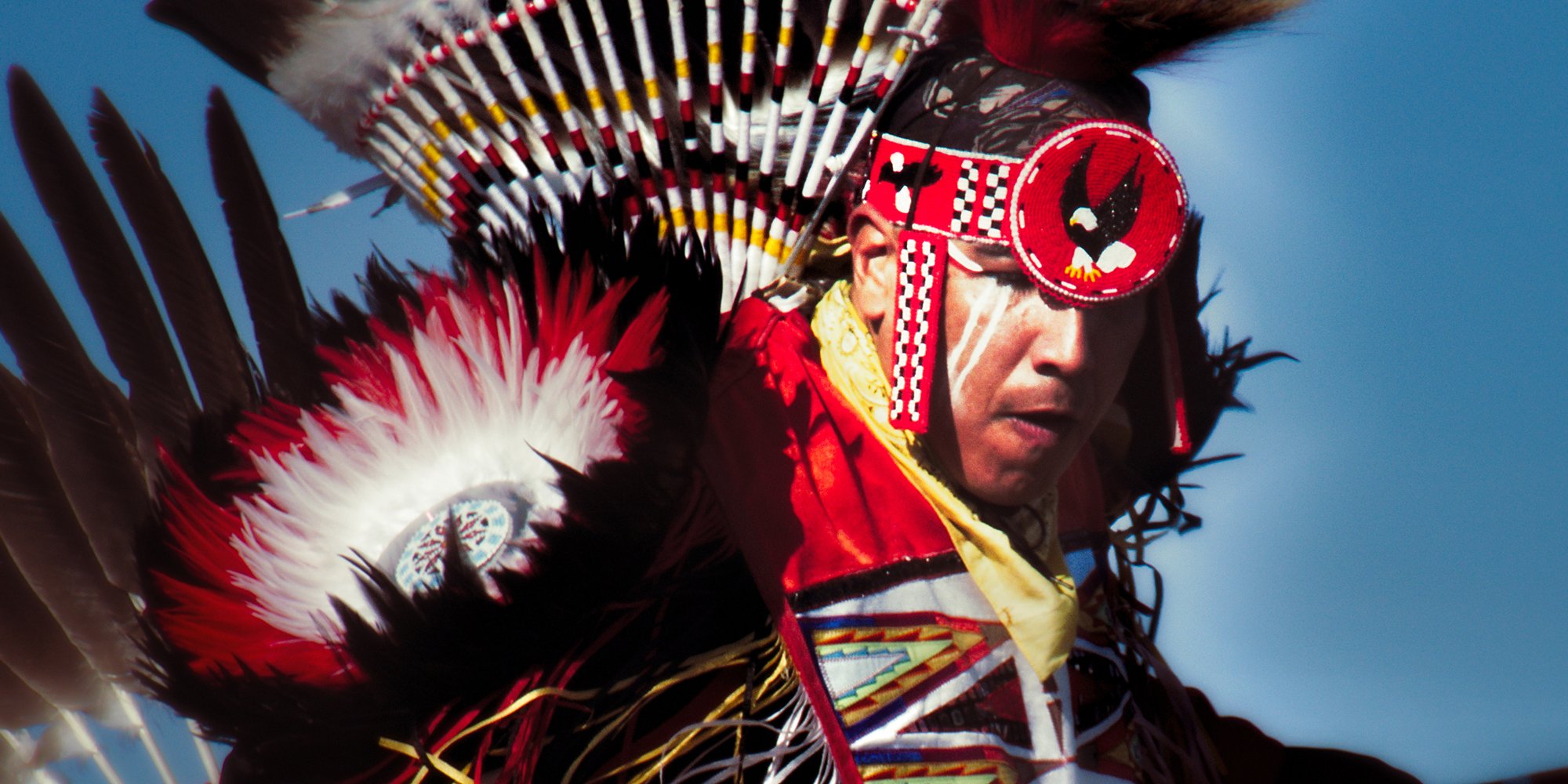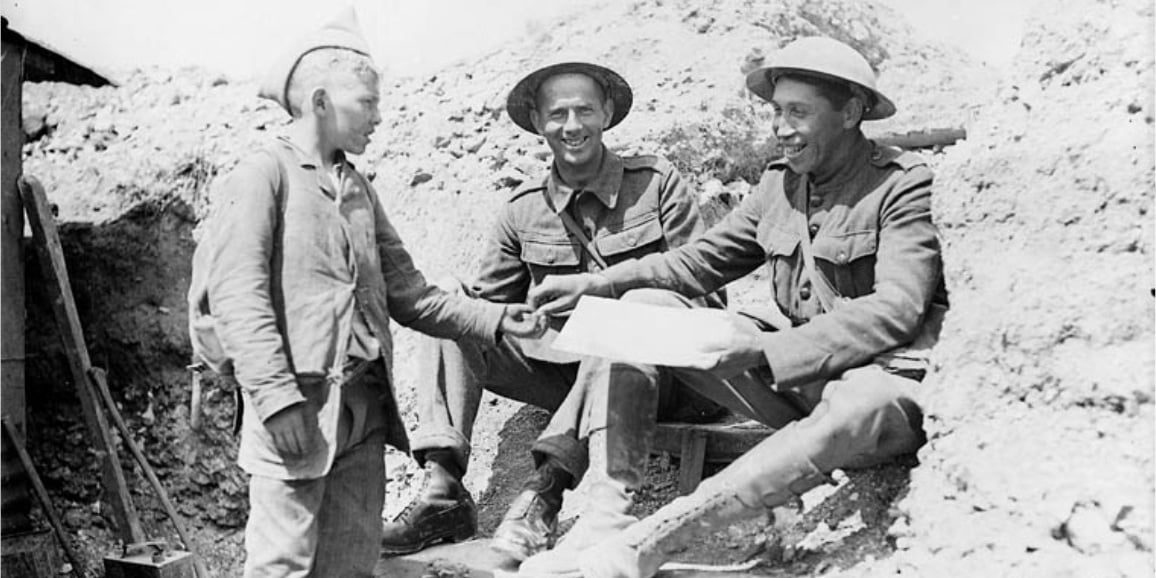14 Facts You May Not Know About Contributions of Indigenous Veterans
Did you know November 8 is National Indigenous Veterans Day? If you are new to the knowledge of the significant contributions of Indigenous veterans...
2 min read
Bob Joseph October 30, 2012

The seeds of the War of 1812 (1812 - 1814) were sown in the Napoleonic Wars (1799 - 1815) between France and Great Britain. Napoleon, frustrated by the resilient British navy, ordered a naval blockade intended to crush the economy of his nemesis. This hostility spilled over to British-American relations when Britain began to stop American ships outbound for French-occupied Europe, to check for British sailors who had forsaken their loyalties for work on American ships. When a British frigate fired on an American warship, killing and wounding American sailors, President Thomas Jefferson enacted the Embargo Act of 1807 (repealed in 1809), intended to further cripple Britain but which caused hardship on American soil as merchants and farmers could not export their goods. Relations continued to deteriorate to the point that a diplomatic solution was deemed impossible and President James Madison declared war against Great Britain in June of 1812.
British North America (Upper and Lower Canada, New Brunswick, Prince Edward Island, Nova Scotia, Cape Breton and Newfoundland), being a colony of Great Britain, was the focus of the Americans. America had long held the view that the entire continent should be united under the American flag and overpowering the British colonies, under-populated and under-defended as they were, was a mere formality - an arrogant under-estimation. Wedged in the midst of these hostilities were Indigenous Peoples on both sides of the border.
Despite assurances in the Royal Proclamation of 1763 that the lands and hunting rights of Indigenous Peoples were protected, this law was overlooked when Britain and the U.S. negotiated the Treaty of Paris in 1783 which recognized American independence - Indigenous Peoples were not present during the negotiations. Distrust and divided loyalties were rampant amongst First Nations, Metis, Mi’kmaq and Maliseet in British North America. So, why would they fight alongside the British in a war that was not of their making? Because the alternative - to fall under American rule and cede more land - was deemed the greater of two evils, and because, the British, desperate for their support, promised them a country of their own.
First Nations, such as the Wyandot, Menominee, Shawnee and Dakota, chose to fight on the side of the British. First Nations from Upper Canada, including the Six Nations, Mississauga and Chippawa, and from Lower Canada, including the Huron-Wendate, Abenaki, Algonquin and Mohawk, as well as Métis fighters of Corps of Canadian Voyageurs, also sided with the British. [1]
Thousands of Indigenous warriors went to battle led by heroic men such as Tecumseh, Shawnee War Chief of Indiana (who chose to fight on the side of the British after his community was sacked by Americans), considered one of the greatest Indigenous leaders of all time, and John Brant, son of Mohawk leader Joseph Brant, a leading figure of the Six Nations of Grand River. That their collective ranks of warriors had been severely depleted during the American Revolution did not stem their determination to be victorious against the Americans. The sacrifices and contributions to the defence of Canada on the part of the Indigenous warriors in the War of 1812 are acknowledged as critical to Canada being established as a distinct country.
In 1814, during peace talks between Britain and the U.S. (at which there was no Indigenous representative) when the British negotiators pushed for the Indigenous country, the Americans refused, and fear that the fighting would continue, the British dropped the issue. Instead of a country of their own as promised, Indigenous rights in the peace talks were summed up with the nebulous “all the rights and privileges they enjoyed before the war” - in other words, their commitment and sacrifices were all for naught and the relationship of distrust was further forged.
Who won? After two and half years of fighting, the North American borders remained unchanged; both countries claimed to have been victorious. Who lost? The First Peoples of Canada.
If you are interested in learning more about Indigenous Peoples's wartime contributions and sacrifices please read 14 Facts You May Not Know About the Contributions of Indigenous Veterans.
[1] Exhibit: Aboriginal Contributions to the War of 1812, Crown-Indigenous Relations and Northern Affairs Canada
Featured photo: The Battle of Queenston Heights, 13 October 1812. Library and Archives Canada, 2895485

Did you know November 8 is National Indigenous Veterans Day? If you are new to the knowledge of the significant contributions of Indigenous veterans...

Indigenous awareness is a broad term – I know because my onsite and public workshops are dedicated to helping people understand the full extent of...

When we think of Indigenous war heroes Tommy George Prince immediately and justifiably jumps to mind. But, there are many other Indigenous heroes who...